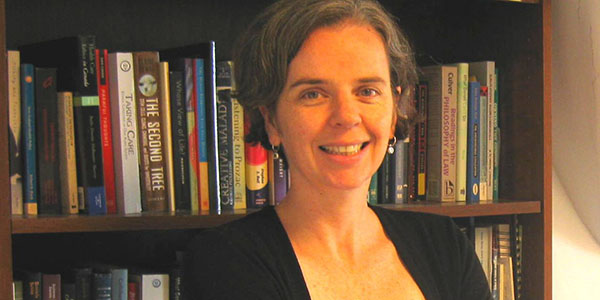Ethics on the Hudson

“What can we do to help infertile people have babies while minimizing the risks of multiple births?”
That is the question with which Josephine Johnston is currently wrestling as a research scholar and director of research operations for The Hastings Center in Garrison. She is overseeing the project under a grant from the March of Dimes.
“Children born as a result of multiple births are at higher risk for health problems,” reports Johnston, a New Zealand-trained lawyer who also holds a master”™s degree in bioethics from the University of Otago. “Their mothers are at higher risk for post-partum depression, as well as feeling overwhelmed psychologically and financially.”
Two main kinds of fertility treatment have contributed to recent increases in multiple births, Johnston notes. “In in vitro fertilization, physicians may transfer more than one embryo to a woman”™s uterus hoping that at least one will implant and grow. But, if two or more are transferred and survive, you have a multiple birth,” she reports. “In another treatment, hormones are administered to stimulate the woman”™s ovaries to produce eggs, which can also result in a multiple birth.”
The Hastings Center in an independent research institute devoted to addressing ethical, legal and policy issues resulting from advances in medicine and science. Its research scholars critically evaluate scientific, medical and other scholarly literature and meet with experts from around the world. They then disseminate their findings to relevant stakeholders, including medical practitioners, policy makers and other researchers and scholars. Although the center does not take official positions on the subjects it researches, its individual scholars may make recommendations.
Johnston greeted the summer by convening a research meeting on fertility treatment and multiple births attended by 22 experts in fertility medicine, obstetrics, neonatology, political science and philosophy, as well as patient advocates. “When we put experts and stakeholders in a room together, they overcome disciplinary differences and hone in on questions about which there is significant disagreement or uncertainty,” Johnston observes. “In these closed meetings, people can be frank.”
Early this year Johnston had published a very different ethical issue in The Scientist magazine.
In the article, titled “Perfect Pitch,” she described research, which compares the efficacy, safety and cost of available treatment for a medical condition. “Old drugs are compared with new drugs, surgical treatments with nonsurgical options, wait-and-see approaches with radical interventions,” she explains. She notes that drug and device manufacturers are wary of comparative effectiveness research, along with some politicians, because it does not always support newer, more expensive
treatment options. “Just as drug and device companies sent sales people to visit physicians in their offices, these programs are sending ”˜academic detailers”™ to meet with clinicians and explain what is and is not known about the safety and efficacy of various treatment options,” she adds.
Johnson earlier authored another commentary for The Scientist titled “America”™s Stem Cell Mess,” which analyzed the U.S. debate over funding embryonic stem-cell research.
This summer the research scholar faces a new challenge. She and her colleagues are working with an independent school to lead 12 high school students through an examination of the complexities of such bioethical health issues as use of drugs to enhance performance in sports, use of stimulants to help college students study, use of surgery for cosmetic purposes. The collaborators aim to develop a bioethics research program that high school teachers can use to examine contested and complex bioethics issues with their students. “This program can be implemented in any high school,” she advises.
Johnston lives in Beacon with her husband, Eric Trump, a writer, and their 3-year-old daughter, Margo.
Challenging Careers focuses on the exciting and unusual business lives of Hudson Valley residents. Comments or suggestions may be emailed to Catherine Portman-Laux at cplaux@optonline.net.